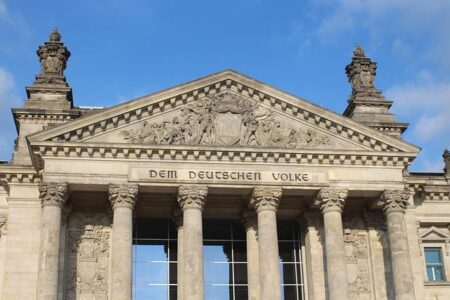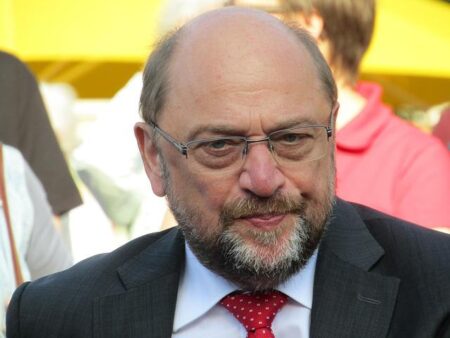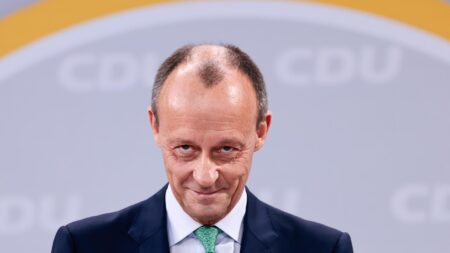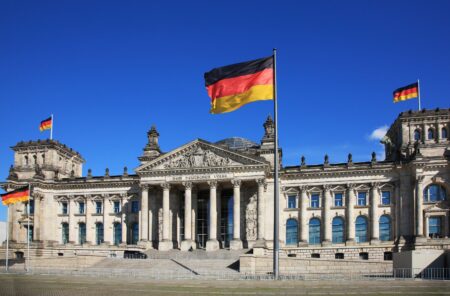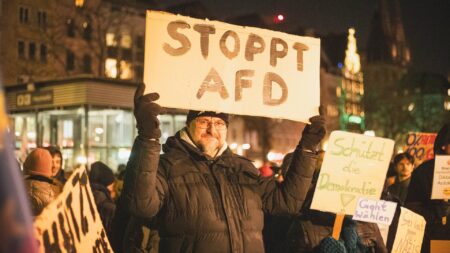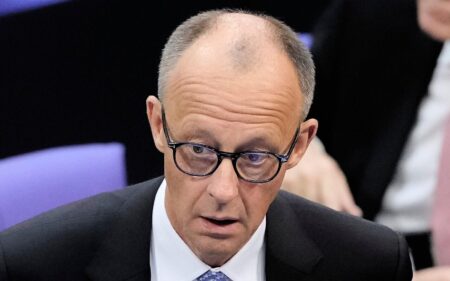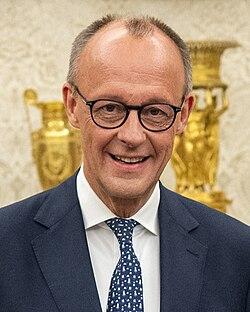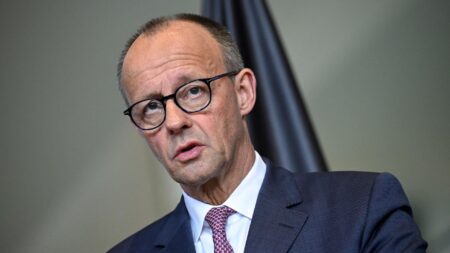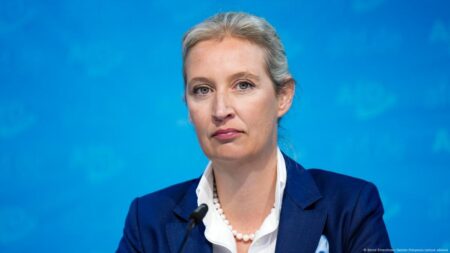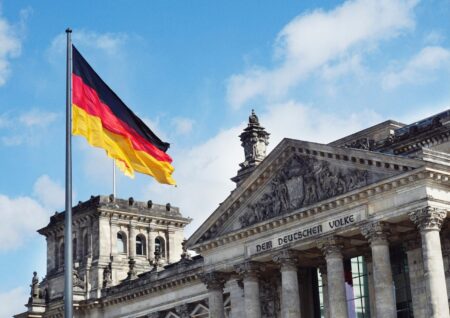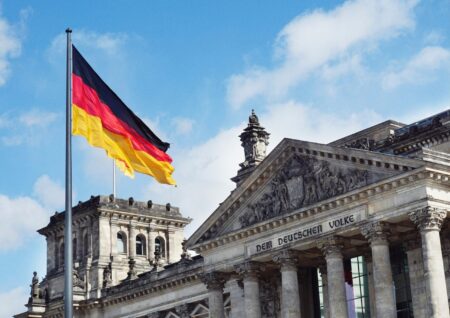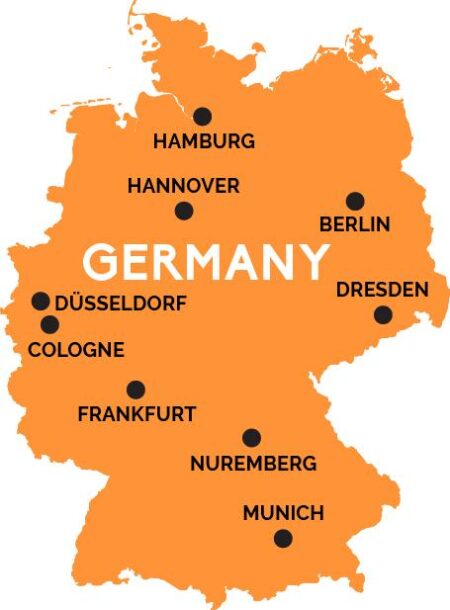Chancellor Merz passionately urged Germany to adopt a bolder foreign policy, stressing the urgent need to “learn the language of power politics.” This powerful declaration signals a bold shift toward greater ambition and assertiveness on the world stage
Browsing: Germany politics
Thousands poured into the streets of Berlin, passionately rallying against the new German military conscription bill and boldly voicing their opposition to mandatory service. Protesters urged the government to explore alternative paths to ensuring national security
Lawmakers have accused Germany’s far-right AfD party of spying on the Bundeswehr for Russia, igniting serious fears over national security and foreign meddling. With tensions rising sharply between Berlin and Moscow, investigations are now moving at full speed
Friedrich Merz is testing Germany’s patience as his conservative leadership faces mounting criticism over stalled reforms and escalating internal party conflicts. His approach ignites fierce debate about the CDU’s future direction
Online conspiracy theories have surged dramatically following the deaths of 16 election candidates in Germany. Authorities are calling for calm and patience, emphasizing that comprehensive investigations are ongoing, even as misinformation spreads rapidly across social media platforms
German authorities have decisively debunked rumors about the deaths of seven far-right candidates ahead of local elections, emphasizing that comprehensive investigations are actively ongoing to determine the real causes. These events have sparked significant public alarm and intense scrutiny
An ex-aide to a far-right German lawmaker has now faced trial, accused of spying for China. This gripping case throws a harsh spotlight on rising concerns over foreign interference in German politics and sends shockwaves through the nation’s security community
Maximilian Krah of Germany’s AfD has ignited a surprising buzz by openly showing interest in CCP ideology, sparking intense debate over the party’s real position on China. Critics are sounding alarms about the potential impact this could have on the future of German politics and democracy
Anti-AfD protesters boldly stormed a live interview with Alice Weidel on German TV, causing a dramatic broadcast interruption. This striking act underscores the fierce and ongoing clashes over the right-wing party’s policies and its place in public life
In a breathtaking late Thursday night twist, Chancellor Merz made a dramatic U-turn on Donald Trump, unveiling a bold new vision for Germany’s political strategy. This surprising move caught allies off guard and marked a pivotal moment in transatlantic relations
Germany’s Friedrich Merz sparked a fierce debate by describing the conflict with Iran as “the dirty work Israel is doing for all of us,” thrusting the escalating tensions over Middle East security into the global spotlight during a recent interview
Friedrich Merz unveils a bold ﻗ؛46bn corporate tax cut plan aimed at turbocharging Germany’s economy. This ambitious strategy is set to spark fresh investment and fast-track growth amid a sluggish recovery, igniting vibrant debates on fiscal responsibility and the country’s competitive future
Germany’s AfD party hits fresh roadblocks as authorities clamp down on its activities, citing alarming links to extremist groups. This crackdown ignites a heated debate about the balance between political freedoms and protecting democracy
Germany’s new government is set to revolutionize the economy by prioritizing green initiatives and embracing digital transformation. Experts are buzzing with excitement over anticipated investments that could ignite robust growth, while potential tax reforms promise to reshape fiscal policies in the coming years.
Germany’s Federal Office for the Protection of the Constitution has made a significant move by suspending the “extremist” classification of the Alternative for Germany (AfD) party. This pivotal decision arrives at a time when discussions about the party’s far-right inclinations and its influence on German politics are heating up
Germany has started deporting individuals identified as pro-Palestine supporters amid rising tensions following recent Middle East conflicts. The move aims to curb potential unrest, drawing both domestic and international reactions regarding freedom of expression.
In a significant political shift, German leader Friedrich Merz has secured the support of the Green party for an increase in defense spending. This bolsters Germany’s military commitments and reflects heightened geopolitical tensions amid calls for a more proactive defense strategy.
Germany’s finance minister, Christian Merz, faces a critical deadline to unveil a groundbreaking spending plan aimed at revitalizing the nation’s economy. With just two weeks to act, the implications of his decisions could reshape fiscal policy for years to come.
Germany’s asylum seekers express growing anxiety over Friedrich Merz’s proposed immigration reforms, which could tighten entry requirements and complicate their paths to residency. Many fear these changes may jeopardize their hopes for a stable future.
Germany’s likely next government is advocating for increased defense spending amid growing concerns about the United States’ commitment to European security. This shift reflects a reassessment of defense priorities in response to global geopolitical tensions.

